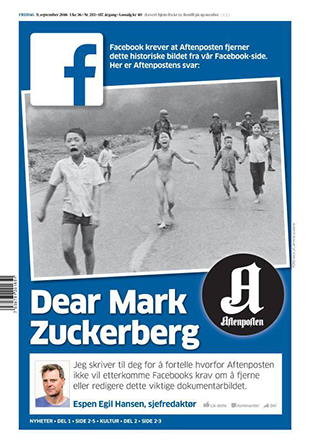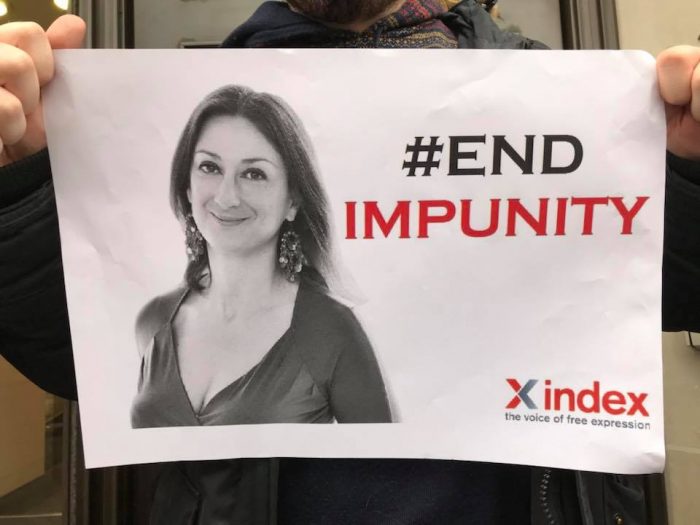6 Nov 2017 | Digital Freedom, News and features
[vc_row][vc_column][vc_column_text]
Facebook has received much criticism recently around the removal of content and its lack of transparency as to the reasons why. Although it maintains their right as a private company to remove content that violates community guidelines, many critics claim this disproportionately targets marginalised people and groups. A report by ProPublica in June 2017 found that Facebook’s secret censorship policies “tend to favour elites and governments over grassroots activists and racial minorities”.
The company claims in their community standards that they don’t censor posts that are newsworthy or raise awareness, but this clearly isn’t always the case.
The Rohingya people
Most recently, almost a year after the human rights groups’ letter, Facebook has continuously censored content related to the Rohingya people, a stateless minority who mostly reside in Burma. Rohingya have repeatedly been banned from Facebook for posting about atrocities committed against them. The story resurfaced amid claims that Rohingya people will be offered sterilisation in refugee camps.
Refugees have used Facebook as a tool to document the accounts of ethnic cleansing against their communities in refugee camps and Burma’s conflict zone, the Rakhine State. These areas range from difficult to impossible to be reached by reporters, making first-hand accounts so important.
Rohingya activists told the Daily Beast that their accounts are frequently taken down or suspended when they post about their persecution by the Burmese military.
Dakota Access Pipeline protesters
In September 2016 Facebook admitted removing a live video posted by anti-Dakota Access Pipeline activists in the USA. The video showed police arresting around two dozen protesters, although after the link was shared access was denied to viewers.
Facebook blamed their automated spam filter for censoring the video, a feature that is often criticised for being vague and secretive.
Palestinian journalists
In the same month as the Dakota Access Pipeline video, Facebook suspended the accounts of editors from two Palestinian news publications based in the occupied West Bank without providing a reason. There are no reports of the journalists violating the networking site’s community standards, but the editors allege their pages may have been censored because of a recent agreement between the US social media giant and the Israeli government aimed at tackling posts inciting violence.
Facebook later released a statement which stated: “Our team processes millions of reports each week, and we sometimes get things wrong.”
US police brutality
In July 2016 a Facebook live video was censored for showing the aftermath of a black man shot by US police in his car. Philando Castile was asked to provide his license and registration but was shot when attempting to do so, according to Lavish Reynolds, Castile’s girlfriend who posted the video.
The video does not appear to violate Facebook’s community standards. According to these rules, videos depicting violence should only be removed if they are “shared for sadistic pleasure or to celebrate or glorify violence”.
“Facebook has long been a place where people share their experiences and raise awareness about important issues,” the policy states. “Sometimes, those experiences and issues involve violence and graphic images of public interest or concern, such as human rights abuses or acts of terrorism.”
Reynold’s video was to condemn wrongful violence and therefore was appropriate to be shown on the website.
Facebook blamed the removal of the video on a glitch.
Swedish breast cancer awareness video
In October 2016, Facebook removed a Swedish breast cancer awareness campaign that had depictions of cartoon breasts. The breasts were abstract circles in different shades of pinks. The purpose of the video was to raise awareness and to educate, meaning that by Facebook’s standards, it should not have been censored.
The video was reposted and Facebook apologised, claiming once again that the removal was a mistake.
The Autumn issue of Index on Censorship magazine explored the censorship of the female nipple, which occurs offline and on in many areas around the world. In October 2017 a Facebook post by Index’s Hannah Machlin on the censoring of female nipples was removed for violating community standards.
“Napalm girl” Vietnam War photo
 A month earlier, in a serious blow to media freedom, Facebook removed an iconic photo from the Vietnam War. The photo is widespread and famous for revealing the atrocities of the war, especially on innocent people like children.
A month earlier, in a serious blow to media freedom, Facebook removed an iconic photo from the Vietnam War. The photo is widespread and famous for revealing the atrocities of the war, especially on innocent people like children.
In a statement made following the removal of the photograph, Index on Censorship said: “Facebook should be a platform for … open debate, including the viewing of images and stories that some people may find offensive, is vital for democracy. Platforms such as Facebook can play an essential role in ensuring this.”
The newspaper whose post was censored posted a front-page open letter to Mark Zuckerberg stating that the CEO was abusing his power. After public outrage and the open letter, Facebook released a statement claiming they are “always looking to improve our policies to make sure they both promote free expression and keep our community safe”.
Facebook’s community standards claim they remove photos of sexual assault against minors but don’t mention historical photos or those which do not contain sexual assault.
The young woman shown in the photo, who now lives in Canada, released her own statement saying: “I’m saddened by those who would focus on the nudity in the historic picture rather than the powerful message it conveys. I fully support the documentary image taken by Nick Ut as a moment of truth that capture the horror of war and its effects on innocent victims.”[/vc_column_text][/vc_column][/vc_row][vc_row][vc_column][vc_basic_grid post_type=”post” max_items=”4″ element_width=”6″ grid_id=”vc_gid:1509981254255-452e74e2-3762-2″ taxonomies=”1721″][/vc_column][/vc_row]
3 Nov 2017 | Artistic Freedom, News and features
[vc_row][vc_column][vc_single_image image=”96393″ img_size=”full” add_caption=”yes” alignment=”center”][vc_column_text]Cartoonist Ramón Esono Ebalé has been named the winner of the 2017 Cartoonists Rights Network International Award for Courage in Editorial Cartooning.
An outspoken and gifted graphic novelist and cartoonist, Ebalé is imprisoned in Equatorial Guinea’s notorious Black Beach prison under as yet unspecified charges.
“The Equatorial Guinean government, one of the most notorious kleptocracies in Africa, is clearly angered by his outspoken comic and cartoon based criticism of the ruling family,” Joel Pett, president of the CRNI board of directors, wrote in a statement accouncing the award.
Ebalé, alias Jamon y Queso, was arrested on 16 September in Malabo, the capital of Equatorial Guinea. He was initially questioned by security agents in relation to his cartoons that are critical of President Obiang and other government officials. News outlets reported a few days later that he is being investigated for alleged money laundering and counterfeiting money.[/vc_column_text][/vc_column][/vc_row][vc_row][vc_column width=”1/2″][vc_single_image image=”96264″ img_size=”full” onclick=”custom_link” link=”https://www.indexoncensorship.org/2017/10/exhibition-repressive-governments-world-fear-cartoonists/”][/vc_column][vc_column width=”1/2″][vc_column_text]
Repressive governments the world over fear cartoonists. Cartoonists get straight to the point. Join Index, CRNI and the UK’s Professional Cartoonists Organisation for an exploration of cartooning.[/vc_column_text][/vc_column][/vc_row][vc_row][vc_column][vc_custom_heading text=”Don’t lose your voice. Stay informed.” use_theme_fonts=”yes”][vc_separator color=”black”][vc_row_inner][vc_column_inner width=”1/2″][vc_column_text]Index on Censorship is a nonprofit that campaigns for and defends free expression worldwide. We publish work by censored writers and artists, promote debate, and monitor threats to free speech. We believe that everyone should be free to express themselves without fear of harm or persecution – no matter what their views.
Join our mailing list (or follow us on Twitter or Facebook) and we’ll send you our weekly newsletter about our activities defending free speech. We won’t share your personal information with anyone outside Index.[/vc_column_text][/vc_column_inner][vc_column_inner width=”1/2″][gravityform id=”20″ title=”false” description=”false” ajax=”false”][/vc_column_inner][/vc_row_inner][vc_separator color=”black”][/vc_column][/vc_row]
3 Nov 2017 | Campaigns -- Featured, Media Freedom, Statements
[vc_row][vc_column][vc_column_text] Nearly 60 free expression advocates marked the International Day to End Impunity for Crimes Against Journalists by honouring the courage of investigative journalist Daphne Caruana Galizia, and call for justice in her case.
Nearly 60 free expression advocates marked the International Day to End Impunity for Crimes Against Journalists by honouring the courage of investigative journalist Daphne Caruana Galizia, and call for justice in her case.
Caruana Galizia was tragically killed on 16 October when a bomb placed under her car exploded as she drove away from her home in Bidnija, in the north of the island of Malta. A specialist in investigating corruption, her work included exposés of the shady secret deals, uncovered in the Panama Papers, that show how politicians and others hide illicit wealth behind secret companies. Her allegations about government corruption led to early elections in the country last June.
“Daphne Caruana Galizia showed remarkable courage in relentlessly pursuing investigations into official corruption and publishing stories that some clearly wanted to keep hidden, for which she paid the ultimate price. We call for justice for Daphne, and for an end to the vicious cycle of violence against journalists and impunity for their attackers everywhere it occurs. An attack on a journalist anywhere is an attack on journalism itself”, said Rebecca Vincent, UK Bureau Director for Reporters Without Borders.
“Daphne Caruana Galizia embodied the courage and commitment of independent journalists everywhere to bring us the news and illuminate inconvenient truths at great risk. Her cowardly murder must not go unpunished. Today we stand with Caruana Galizia’s family, friends, and colleagues, in the pledge to seek justice for her and for all journalists who have paid the ultimate price simply for doing their job”, said Nina Ognianova, Europe and Central Asia Programme Coordinator for the Committee to Protect Journalists.
“For decades, leading investigative journalist Daphne Caruana Galizia fought courageously to uncover corruption in her native Malta, in spite of ongoing intimidation, threats, lawsuits and attacks on her family home. Following her brutal murder, it is crucial that we come together to pay tribute to her bravery, to call for a full and impartial investigation, and to continue her legacy”, said Cat Lucas, Writers at Risk Programme Manager for English PEN.
“We are shocked and saddened at the death of Daphne Caruana Galizia. It’s important and necessary that we acknowledge her today and moving forward to pay tribute to her bravery in fighting corruption in her country. Her tragic death will serve as a stark reminder of the dangers journalists around the world face every day in doing their important work”, said Laura Gane, Editorial Director of the Frontline Club.
“The murder of a prominent investigative journalist in broad daylight in an EU Member State underscores the seriousness of this crime. Daphne Caruana Galizia’s work as a journalist to hold power to account and shine a light on corruption is vital to maintaining our democratic institutions. Her killing is a loss for her country and for Europe”, said Hannah Machlin, Project Manager for Index on Censorship’s Mapping Media Freedom programme.
“Daphne Caruana Galizia was a lone but important voice, and her death leaves a void in a country that urgently needs to address the growing widespread perception that it is failing in its efforts to end corruption”, said Patricia Moreira, Managing Director of Transparency International.
Co-sponsors of the London vigil included ARTICLE 19, the Committee to Protect Journalists, English PEN, Frontline Club, Index on Censorship, PEN International, Reporters Without Borders, and Transparency International.
Malta is ranked 47th out of 180 countries in Reporters Without Borders’ 2017 World Press Freedom Index, and 47th out of 176 countries in Transparency International’s Corruption Perception Index 2016.[/vc_column_text][/vc_column][/vc_row][vc_row][vc_column][vc_row_inner][vc_column_inner width=”1/2″][vc_single_image image=”80577″ img_size=”full” onclick=”custom_link” link=”https://www.indexoncensorship.org/2017/10/impunity-crimes-against-journalists-unresolved/”][/vc_column_inner][vc_column_inner width=”1/2″][vc_column_text]
Index on Censorship and Reporters Without Borders have highlighted prominent cases of impunity.[/vc_column_text][/vc_column_inner][/vc_row_inner][vc_row_inner][vc_column_inner width=”1/2″][vc_single_image image=”96085″ img_size=”full” onclick=”custom_link” link=”https://www.indexoncensorship.org/2017/10/daphne-caruana-galizia-life-and-career/”][/vc_column_inner][vc_column_inner width=”1/2″][vc_column_text]
Daphne Caruana Galizia was a Maltese journalist and blogger known for her investigative reporting on controversial and sensitive information.[/vc_column_text][/vc_column_inner][/vc_row_inner][vc_row_inner][vc_column_inner width=”1/2″][vc_single_image image=”96373″ img_size=”full” onclick=”custom_link” link=”https://www.indexoncensorship.org/2017/10/international-press-freedom-groups-condemn-killing-maltese-investigative-journalist/”][/vc_column_inner][vc_column_inner width=”1/2″][vc_column_text]
Sixteen press freedom groups condemn the killing of investigative journalist Daphne Caruana Galizia and demand an immediate and independent investigation into her death.[/vc_column_text][/vc_column_inner][/vc_row_inner][vc_custom_heading text=”Mapping Media Freedom” use_theme_fonts=”yes”][vc_separator color=”black”][vc_row_inner][vc_column_inner width=”1/4″][vc_icon icon_fontawesome=”fa fa-times-circle” color=”black” background_style=”rounded” size=”xl” align=”right”][/vc_column_inner][vc_column_inner width=”3/4″][vc_column_text]
Since 24 May 2014, Mapping Media Freedom’s team of correspondents and partners have recorded and verified 3,597 violations against journalists and media outlets.
Index campaigns to protect journalists and media freedom. You can help us by submitting reports to Mapping Media Freedom.[/vc_column_text][/vc_column_inner][/vc_row_inner][vc_separator color=”black”][/vc_column][/vc_row][vc_row][vc_column][vc_custom_heading text=”Don’t lose your voice. Stay informed.” use_theme_fonts=”yes”][vc_separator color=”black”][vc_row_inner][vc_column_inner width=”1/2″][vc_column_text]Index on Censorship is a nonprofit that campaigns for and defends free expression worldwide. We publish work by censored writers and artists, promote debate, and monitor threats to free speech. We believe that everyone should be free to express themselves without fear of harm or persecution – no matter what their views.
Join our mailing list (or follow us on Twitter or Facebook) and we’ll send you our weekly newsletter about our activities defending free speech. We won’t share your personal information with anyone outside Index.[/vc_column_text][/vc_column_inner][vc_column_inner width=”1/2″][gravityform id=”20″ title=”false” description=”false” ajax=”false”][/vc_column_inner][/vc_row_inner][vc_separator color=”black”][/vc_column][/vc_row]
2 Nov 2017 | Events
[vc_row][vc_column][vc_column_text]Join Index on Censorship for a talk on freedom of expression and censorship in publishing, as part of the conference Publishing – A Brave New World? organised by the Society of Young Publishers.
Jemimah Steinfeld, deputy editor of Index on Censorship magazine, will discuss the current challenges facing the book industry. Joining her on the panel will be Jo Glanville, former director of English PEN and Theo Jones, Publishing Contacts Advisor at the Society of Authors.
For more information on the programme and conference click here.[/vc_column_text][/vc_column][/vc_row][vc_row][vc_column width=”1/3″][vc_single_image image=”88892″ img_size=”full” add_caption=”yes”][/vc_column][vc_column width=”1/3″][vc_single_image image=”96365″ img_size=”213×142″ add_caption=”yes” alignment=”center”][/vc_column][vc_column width=”1/3″][vc_single_image image=”96364″ img_size=”213×142″ add_caption=”yes” alignment=”center”][/vc_column][/vc_row]

 A month earlier, in a serious blow to media freedom, Facebook removed an iconic photo from the Vietnam War. The photo is widespread and famous for revealing the atrocities of the war, especially on innocent people like children.
A month earlier, in a serious blow to media freedom, Facebook removed an iconic photo from the Vietnam War. The photo is widespread and famous for revealing the atrocities of the war, especially on innocent people like children.
 Nearly 60 free expression advocates marked the International Day to End Impunity for Crimes Against Journalists by honouring the courage of investigative journalist Daphne Caruana Galizia, and call for justice in her case.
Nearly 60 free expression advocates marked the International Day to End Impunity for Crimes Against Journalists by honouring the courage of investigative journalist Daphne Caruana Galizia, and call for justice in her case.